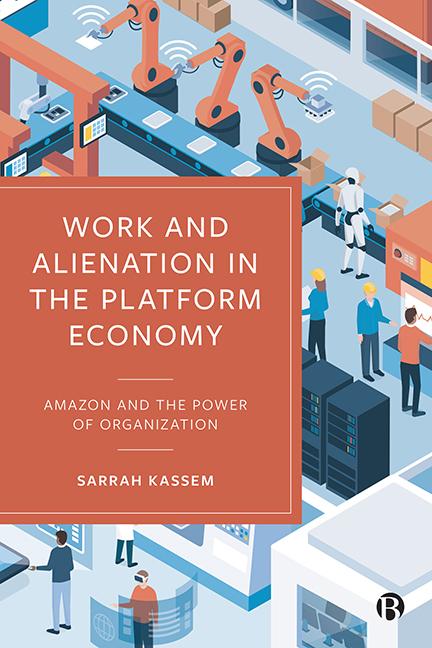12 - Conclusion
Published online by Cambridge University Press: 18 January 2024
Summary
This book has in essence been about the ability to act and struggle in the hope of bringing about change in a system designed in the interests of the few and at the cost of the many. Workers in the platform economy constitute one of countless contemporary examples that shed light on the complexity of agency within our current capitalist moment, as they face hostile material conditions that aim to restrain and impede their labor organization. As platforms continue to grow in economic, political, social and technological power, which has become even clearer in light of COVID-19, it is crucial to delve into the exploitative social relations between capital and labor at the heart of the platform economy. I avoid fetishistic understandings that paint technology as devoid of all materiality and humanity, and deterministic understandings that paint workers as devoid of all subjectivity and agency, which normalize and eternalize capitalism. I see this as crucial in order to understand current developments and inequalities not as inevitable and preordained, thus opening up the possibility of conceptualizing change and transformation.
Amazon has become representative of trends and developments in the platform economy with other corporations looking to ‘Amazonify’ their business model in terms of capital and their workforces. Amazon’s ecosystem has long evolved beyond the initial online sale of books and now stretches across commodities, technologies and services. Considering that platforms do not organize workers uniformly along the same working conditions or contexts, it has been important to examine two contrasting case studies: the Amazon warehouse workers and MTurk workers. The interaction between the nature of the platform and the nature of the work appears at first to alienate workers in different ways and to frustrate possible expressions of their agency. Examining each dimension, from traditional location-based laboring and its time-wages to the novelty of web-based laboring and traditional piecework, sheds light on their larger repercussions for the working conditions and labor’s struggle within the platform economy and possibly beyond it. Rejecting a capitalist deterministic perspective, this book has argued that workers may be conscious of their alienation and strive to organize and foster solidarity around their class interests – for which political– economic and technological conditions can provide obstacles but also opportunities.
- Type
- Chapter
- Information
- Work and Alienation in the Platform EconomyAmazon and the Power of Organization, pp. 169 - 175Publisher: Bristol University PressPrint publication year: 2023



